Dr. Maureen Valley’s life seems like a precision juggling act. “I have lots of different interests—maybe that’s a blessing, and maybe that’s a curse.” A wife and mother, Valley, DMD, MPH, MS serves as associate professor and director of the postgraduate orthodontic clinic at the Arthur Dugoni School of Dentistry, runs a private orthodontic practice in San Rafael, California, and participates in healthcare mission trips to underdeveloped communities in countries such as Venezuela, Nepal, Vietnam, Mexico and most recently Kenya.
Since the age of 17, Valley has been on her own, taking part-time jobs to support herself through numerous academic programs—a cross-country journey that took her from Wisconsin, where she grew up, to the University of California at Santa Barbara, Harvard University and Northwestern University. Always working at least 20 hours a week, while managing rigorous course loads to attain her bachelor’s, two master’s and doctorate degrees, was a valuable experience for Valley. “From an early age, my parents taught me if you want something in life, you must go out and get it because it’s not likely to just be given to you,” she explained. “As a result of that, and a Midwestern work ethic, I came to expect a lot of myself, and to always strive to live life to the fullest.”
Although her interests are diverse, she views them as “synergistic.” In her health mission work, Valley taps into many of her passions—orthodontics, oral health, public health, education and global outreach. Through involvement in Rotaplast International, she has completed several mission trips alongside Dr. Marie Tolarova, professor and director of the dental school’s Craniofacial and Cleft Prevention Program.
[pullquote]
Kenya’s population is approximately 43 million people, but there are fewer than 1,000 dentists to serve the country.
[/pullquote]
Mission work requires working side by side with local community leaders, health care providers and officials, listening to them and their community and understanding what they feel their needs are. “We work as a team,” said Valley. “It isn’t just about us going into someone else’s country and saying, ‘this is what you should have or do.’ We want the local healthcare providers to tell us how we can support them.”
Valley’s love for Kenya began when her family visited a good friend and went on safari in 2012. That eye-opening experience triggered a great interest in returning to help the poorest communities, and a year later Valley was selected to be a member of the U.S. Vocational Training Team for Kenya Smiles, a Rotary International program that aims to improve the oral health of children in Kenya through prevention and education. The project brought together a team of leading dentists from the U.S. and Kenya to work directly in the neediest communities of Nairobi and Meru.
With the experience she gained with Kenya Smiles and the guidance and support of many people she met along the way, including the chief dentist from the Kenyan Ministry of Health, Valley started her own self-directed oral health and nutrition project in 2014. Working in partnership with Samson Saigilu, an experienced public health official from Kenya, their program is focused on the most marginalized and remote Maasai communities in southern Kenya on the slopes of Mt. Kilimanjaro. Currently, Kenya’s population is approximately 43 million people, but there are fewer than 1,000 dentists to serve the country, and those dentists are mainly concentrated in Nairobi. Lack of oral health knowledge and dental care, illiteracy, traditional and cultural beliefs and the influx of western foods, including junk food, have created a disastrous oral health care problem for Kenya, similar to what has happened to many underdeveloped countries.
Faced with these challenges, Valley identifies education as the most important focus of her project. The work Valley does with these outreach efforts aims to create sustainable systems that use existing infrastructures. The teams work with school teachers, health facility workers and local public health officials to integrate an oral health and nutrition education component into programs already in action. “The idea is to impart knowledge exponentially and to create local sustainability,” explained Valley.
As Valley considers the future of her philanthropic work in Kenya, she hopes to continue to strengthen existing relationships and to start providing treatment in addition to education. As the program grows, she sees potential for greater student and faculty participation.
Valley has formed a life-long habit of learning and has sought out mentors to guide her personal and professional development. She is quick to credit her successes to her mentors, among whom she names Dr. Robert Boyd, Dr. Arthur A. Dugoni, Dr. Stephen Hannon, Glenn Reno, Dr. Marie Tolarova, and her father-in-law, Dr. Joseph Henry. “Finding a mentor is a vital step for everyone starting a career or something new,” said Valley. She has “paid it back” by also being a mentor to many students and young professionals at Pacific and abroad.
Valley cares for communities in the global and local spheres. At the core is her family, which includes her husband Peter, and daughters Caroline and Claire. She strives to set a good example for her daughters “to open their eyes to a bigger world that’s around us,” and to teach them about “our obligation to give back to the world when we’ve been given so much, because from those to whom much has been given, much is to be expected.”
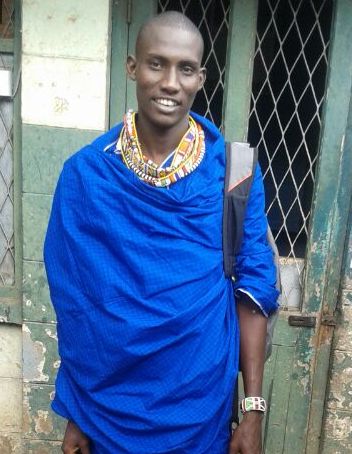
Samson Saigilu, co-director of the oral health project in Loitokitok, Kenya. A Maasai warrior, a public health officer for the Ministry of Health, Kenya, Saigilu is also a student majoring in public health at Mt. Kenya University in Nairobi. 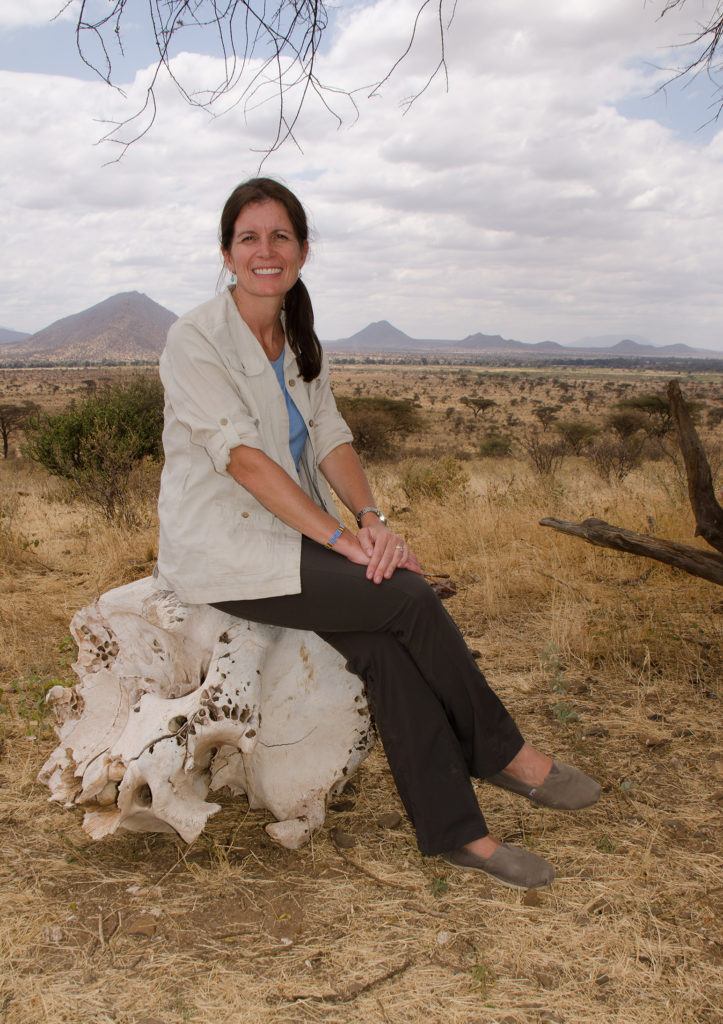
Maureen Valley in Samburu National Reserve, Kenya. 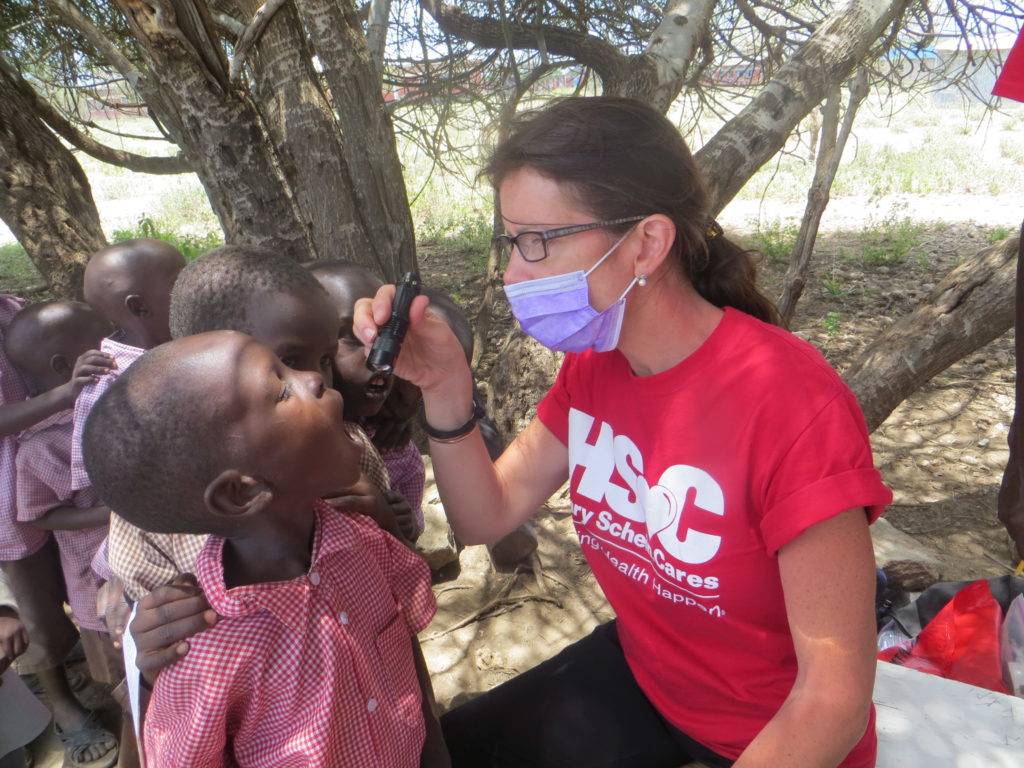
With a young girl in Imbirikani Health Dispensary, Imbirikani, Kenya. 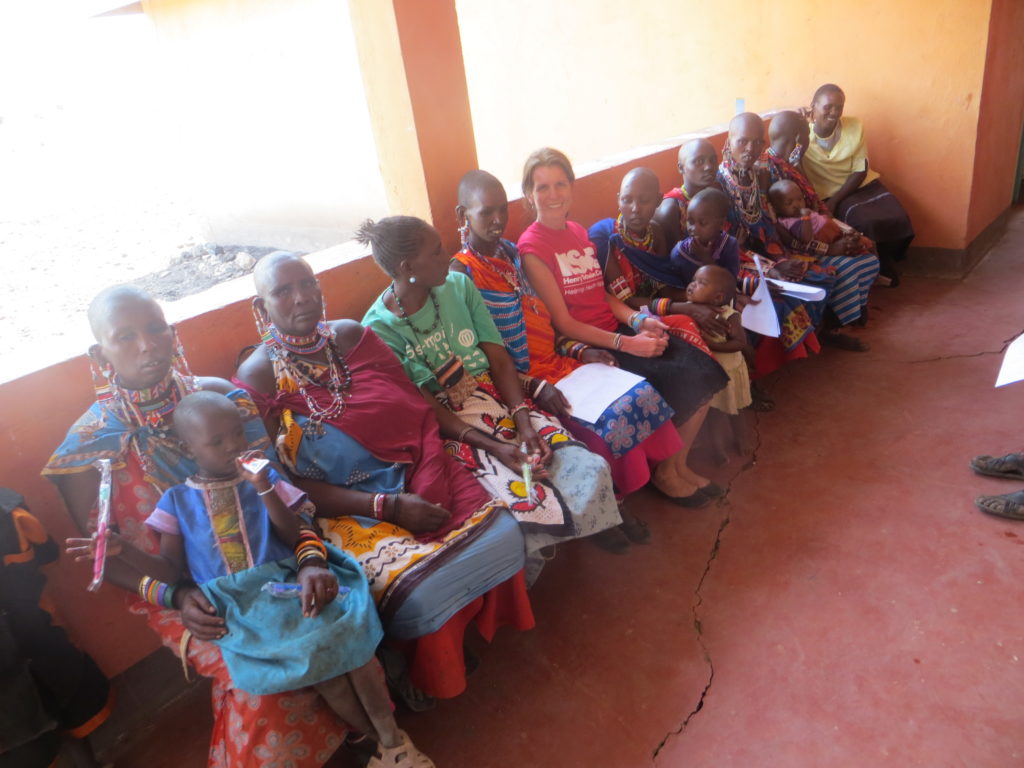
Seated next to Maasai mothers in the Enkongu Narok Health Dispensary, Enkongu Narok, Kenya. 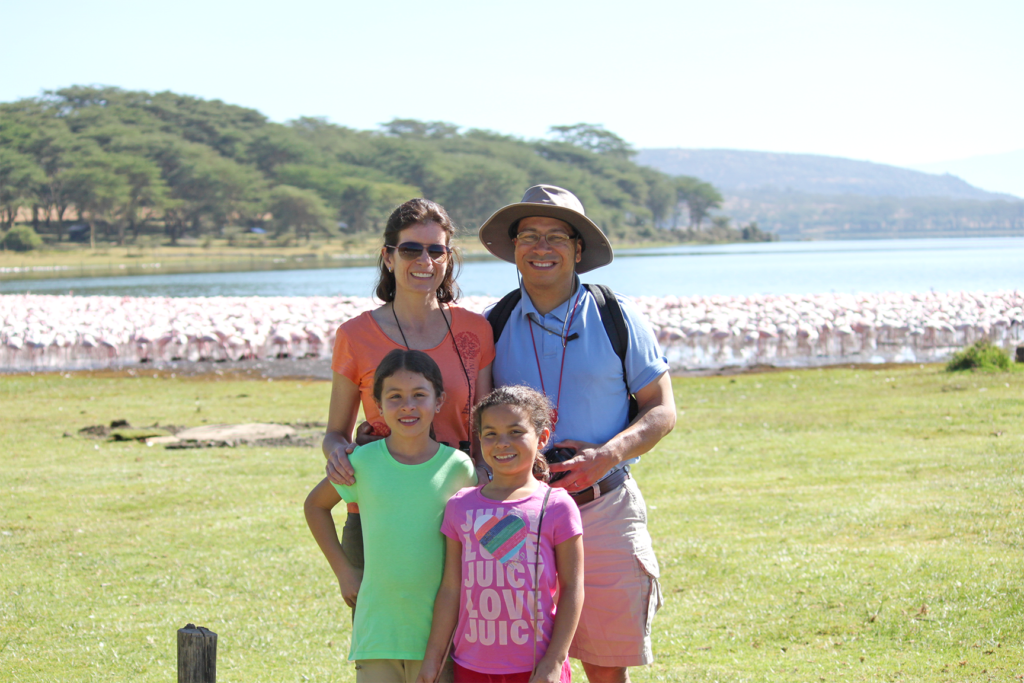
Valley, husband Peter, and daughters Caroline and Claire, surrounded by flamingos in Nakuru, Kenya. 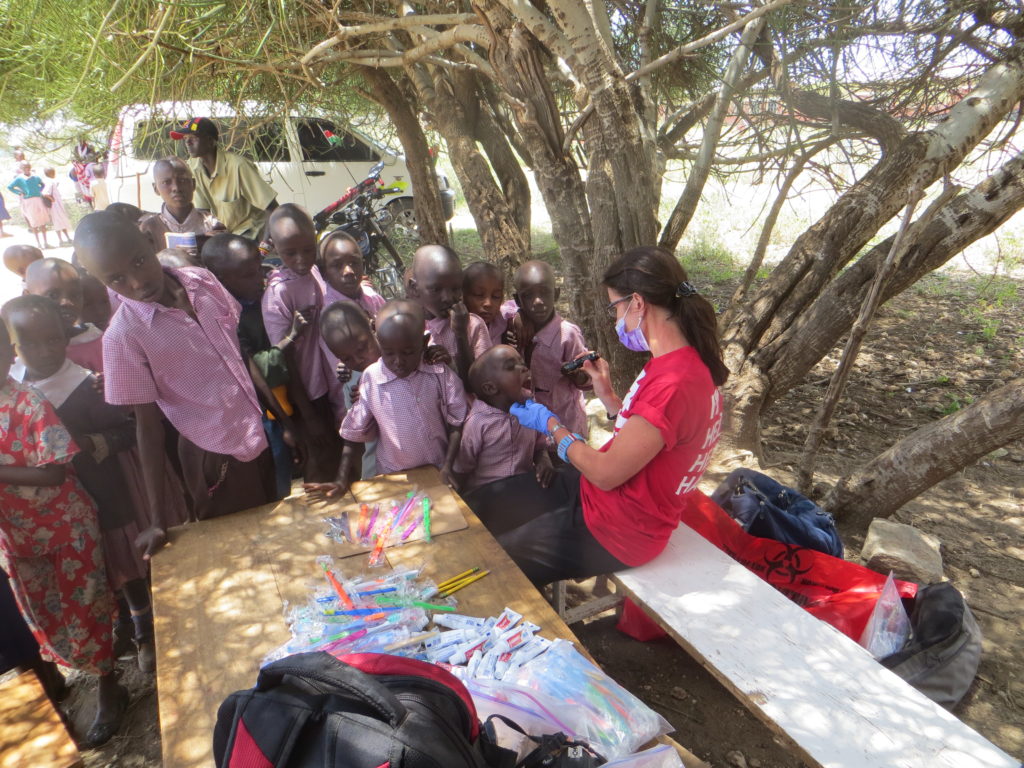
Conducting oral exams with primary school children in Olgulului, Kenya. 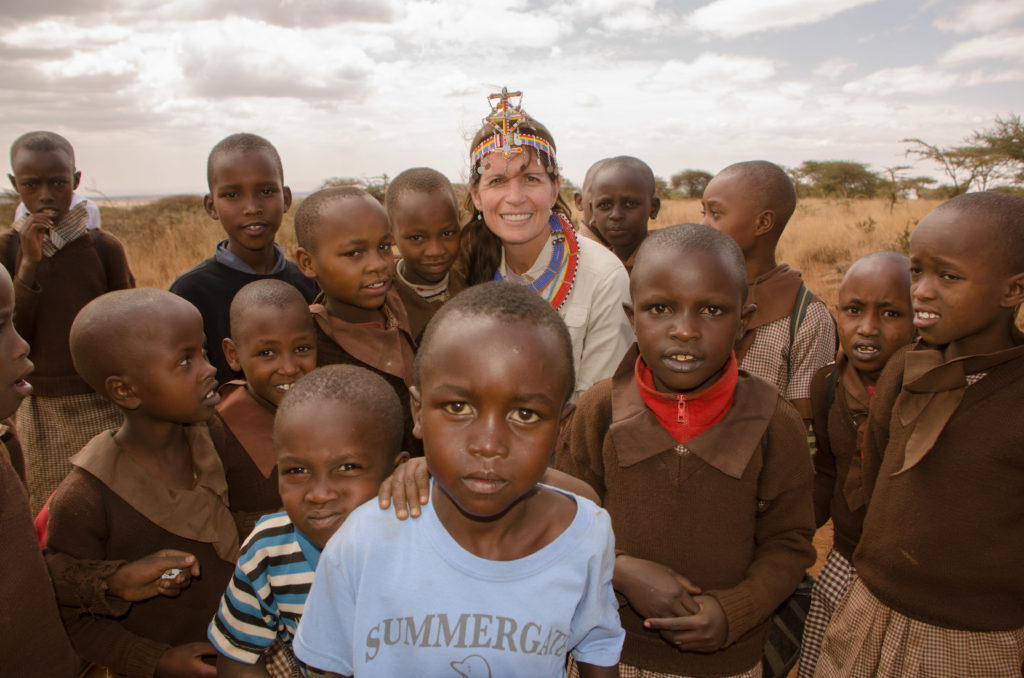
Surrounded by schoolchildren from a village in Amboseli, Kenya.
